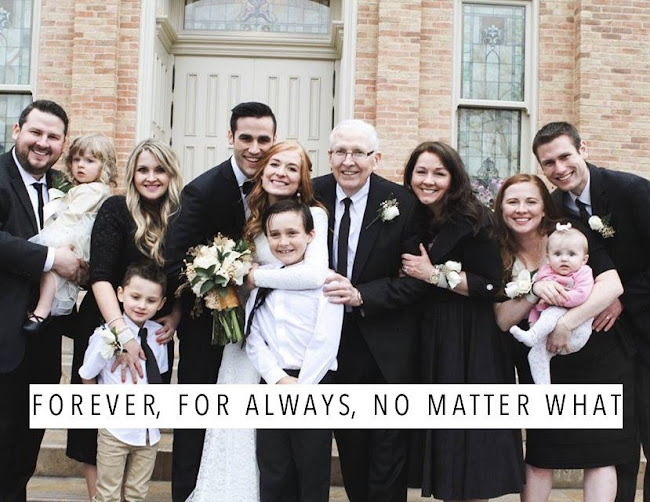This was a final paper I wrote for one of my classes. Our assignment was to discuss a trial we have been affected by in our childhood. This is a very pesonal experience for me and sharing it is part of my healing!
“We
can’t be friends with you because you don’t have eyelashes.” Alone on the steps
to the playground my eight year old heart was shattered. As a natural born
redhead I was blessed with almost translucent skin, blue eyes and aside from my
auburn locks the rest of the hair on my body was all but invisible. I went home
that day and cried to my mother, begging her to do something about my
unfortunate phenotypic circumstance. We went to Walmart, bought brown mascara
and spent the rest of the evening practicing applying it. The following day I
went to school with visible eyelashes and regained my place among my “friends”.
How despairing it is that at 8 years old human beings are already able to place
value on a person based on their physical appearance. At eight years of age my
value was dependent on the color of my eyelashes.
Two years later my value was again
challenged by peers who further defined worth by bronzed skin. Unfortunately,
biology didn’t afford me that privilege and I found myself nearly obsessed with
the hunt for a solution to my circumstance. A preoccupation with my “imperfect”
body was heightened by the checkout line at the local grocery store. A quick
scan of the magazine rack revealed a concept of perpetual conformity to
society’s ideal. A perfectly tanned, blonde woman smiled confidently as she
sported a short top displaying her perfectly toned stomach. I glanced at the
stack of magazines to find another tan woman, this time brunette, wearing a
short dress revealing her slim arms and long, muscular legs. I searched the
entirety of the media stand for a woman resembling my own physical appearance
but she was not found. This pursuit to find a championed redhead on the
magazine rack became a ritualistic occurrence during every grocery store visit.
Each time I returned home with another item on my biological “fix-it” list.
Idealistic physical traits have been
recorded throughout history’s own media stands. Paintings of heralded body
types adorn the walls of famous museums across the world, effectively
describing that era’s own definition of human worth. Statues and busts portray
tangible evidence of the sought after bodies of the time. The world has never
had a shortage of physiological ideals and efforts to enforce them, but our
current era is the most dangerously debilitating of all. Magazine shelves at
the store are not the only influence of quixotic physical characteristics.
Movies, television shows, advertisements on television, social media, websites
and billboards are all emblazoned with a “how to change yourself” display.
Teenage girls are especially targeted by this type of advertising as it
communicates their worth based on clothing brands and styles, hair styles, body
type, makeup styles and sexual activity. The only campaigns for expanding worth
based on intelligence, mental or emotional maturity, communication skills,
healthy sense of self, talents etc. are overshadowed by funded displays
parading in an “in your face” crusade.
Social media has become a visible
judging standard to which teenagers are comparing themselves every day. A
perfectly designed “candid” photo posted to a media platform begs acceptance
and the artist behind the masterpiece is validated based solely on quantifiable
response. Truly, this type of esteem based on quantity not quality is disabling
our younger generations from healthy mental, emotional, social and intellectual
development. For the youth, life is a stage on which they must perform and to
which the whole world is the audience. This constant stress to appease the
masses places an unbearable burden on a mentally and emotionally immature
generation. Unrealistic expectations afflict esteem with ease by celebrities
whose “real” lives are the trending topics on public sites. Ads based on
reported gender attack the unsuspecting victim with flashy invitations to
groups, clubs, and companies that can aid in the effort to conform to
“society’s” norms.
Another invasive contributor to body
shaming is that of advertising. Much like the magazines I saw as a young girl,
advertising has a loud message. Advertising is completely based on visual
representations of the product the company is trying to sell. The overall
message given by each corporation is that if you don’t have their product your
life is lacking. Making a mockery of organic life experiences, companies insert
their product into your most intimate moments, distorting your joyful reality
into an avaricious alternative realm. Just one short week after I gave birth to
my daughter, companies began emailing me about how I can lose all of the weight
I gained through my pregnancy before six postpartum weeks. My focus immediately
changed from discovering the intimate joys of my newfound motherhood to my
sudden need to put my energy into losing weight. I created an unrealistic ideal
which if I failed to fulfill I was not a real mother. In short, if I did not
lose all of my pregnancy weight by six weeks I was a bad mom. In actuality my
weight and my ability to be a wonderful mom are unrelated. Reaching six weeks
and not having lost all of my pregnancy weight shattered me. I was unable to
look in the mirror without my eyes immediately judging the width of my thighs,
the roundness of my belly, or the subtle double chin that formed from my
pregnancy. In an effort to avoid the shame I felt, I would go weeks without
looking in the mirror aside from a rushed glance to apply makeup.
These examples of societal impact
are indeed worrisome. The most alarming effect, however, is the poisonous
sludge of pornography that intoxicates our world. Situated as the pinnacled
omega on the body-shaming spectrum, pornography wages the most violently
offensive attack on beautiful realities. Pornography’s very D.N.A. is laced
with lies and intertwined with impossible ideals. It physically alters the human
brain and disables real human connection. A man whose mind has been horribly
disfigured by the unrelenting appetite for the fictitiously portrayed scenes of
pornography places his distorted definitions onto all females in his life.
Having been defined by a man so afflicted, I have endured a daily battle of his
cruel words for more than six years. Although he is long gone from my life, his
words ring in my ears as if they were just said.
As much as we desire a fairytale
ending when happiness swoops in like an unexpected breath of fresh air, reality
begs a more determined effort for resolution. I have to fight my shaming
dragons each day, even when I am so ready to give in to their hurtful lies.
Having a valiant knight by my side to slay the offenders is a paramount
blessing, though some battles I have to fight alone. Triumph over the disease
of body shaming is a possibility, but one that demands determination. Limiting
my interaction with the aforementioned abusers is key. If I do not place myself
in their line of attack, I will have fewer wounds to mend. Reminding myself of
my divinity empowers me to stand resolute and victorious. I know who I am and
no matter the slanderous tales the world tries to convince me of, the truth of my
identity will always be there. I am a beautiful daughter of God.















